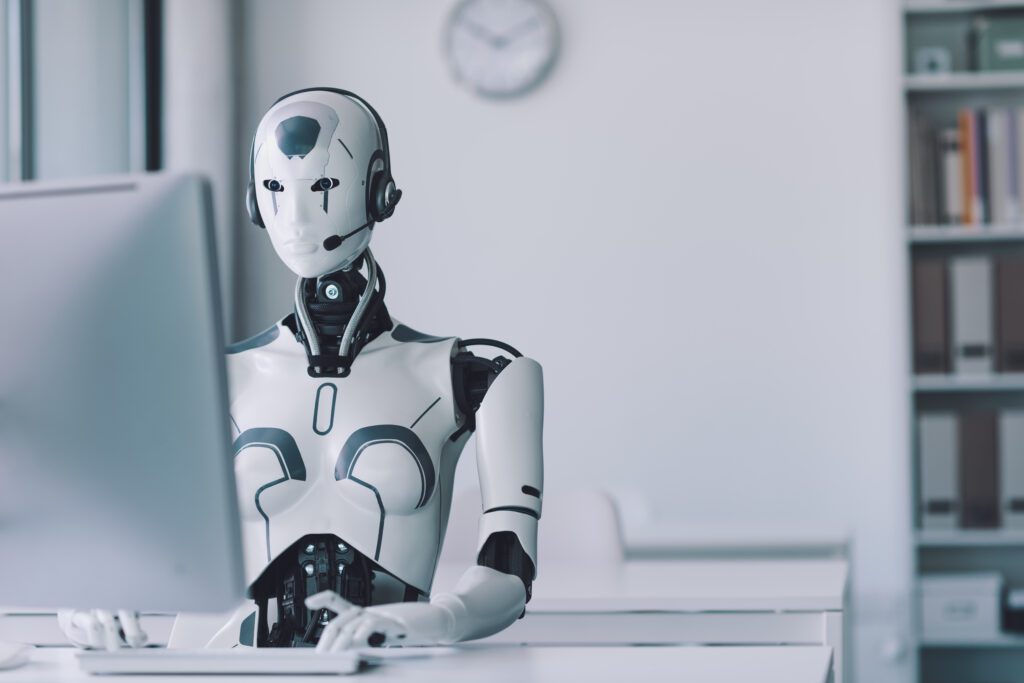Artificial Intelligence (AI) is emerging as a transformative force, not only in the realm of innovation but also in reshaping the job market across various industries. This comprehensive exploration delves into the profound impact of AI on employment, unfolding the unprecedented changes, industry-specific disruptions, and ethical considerations accompanying this technological revolution.
An Unprecedented Transformation: How AI is Reshaping the Job Landscape
The integration of AI into workplaces is fundamentally altering the nature of jobs. Traditional roles are evolving, and new opportunities are emerging. The advent of automation and machine learning is streamlining operations, leading to job restructuring and, in some cases, job elimination. We explore the overarching transformation occurring on a global scale, providing insights into the intricate dance between technology and employment.
Industries in the Crosshairs: Exploring the Sectors Most Affected by AI Disruption
Certain industries are at the forefront of AI-induced changes. Manufacturing, healthcare, finance, and customer service are witnessing significant shifts. We dissect these sectors, examining how AI is impacting jobs, creating new roles, and what these changes mean for the workforce. From intelligent manufacturing processes to AI-powered diagnostic tools in healthcare, industries are adapting to a new era.
A Glimpse into the Future: Navigating the Job Market Amidst AI Advancements
The future of work is evolving alongside AI advancements. Understanding the direction of this evolution is crucial for job seekers, employees, and employers alike. We provide insights into how individuals can upskill, reskill, and adapt to remain relevant in a job market influenced by AI. Additionally, we explore how companies can foster a culture of continuous learning to empower their workforce in the face of evolving technologies.

Beyond Job Loss: Unveiling New Opportunities in the Age of AI
While AI can lead to job displacement, it also opens doors to new opportunities. We shed light on how emerging job roles in AI development, data science, and ethical AI practices are creating a demand for a different set of skills. The evolving nature of work requires individuals to embrace lifelong learning and adaptability, ensuring they stay competitive in a job market shaped by AI technologies.
The Ethical Landscape: Addressing the Human Side of AI-Driven Job Changes
As industries adapt to AI, ethical considerations come to the forefront. The ethical implications of AI in the job market include concerns about fairness, bias, and inclusivity. We discuss the importance of developing and implementing ethical frameworks to guide the responsible deployment of AI in employment practices. Balancing innovation with ethical considerations is crucial for building a sustainable and inclusive future.
Government Initiatives and Policies: Shaping the Future of AI-Enabled Employment
Governments play a pivotal role in shaping the landscape of AI-driven employment. We explore various initiatives and policies implemented by governments worldwide to navigate the challenges and opportunities presented by AI. From funding research and development to establishing guidelines for responsible AI use, governments are actively involved in creating an environment that fosters innovation while safeguarding the rights and well-being of workers.
Preparing for the Future: Strategies for Individuals and Organizations
In this section, we provide actionable strategies for individuals and organizations to navigate the evolving job market shaped by AI. For individuals, this includes embracing a growth mindset, continuous learning, and adaptability. For organizations, fostering a culture of innovation, investing in employee training, and prioritizing ethical AI practices are key components of preparing for the future.
Navigating the AI-Driven Job Landscape
The integration of AI into industries is an irreversible trend, and its impact on employment is both profound and multifaceted. As we navigate the AI-driven job landscape, it is essential to recognize the potential benefits of technology while addressing the challenges it poses. By adopting a proactive and inclusive approach, individuals and organizations can harness the power of AI to create a future of work that is both innovative and humane.
